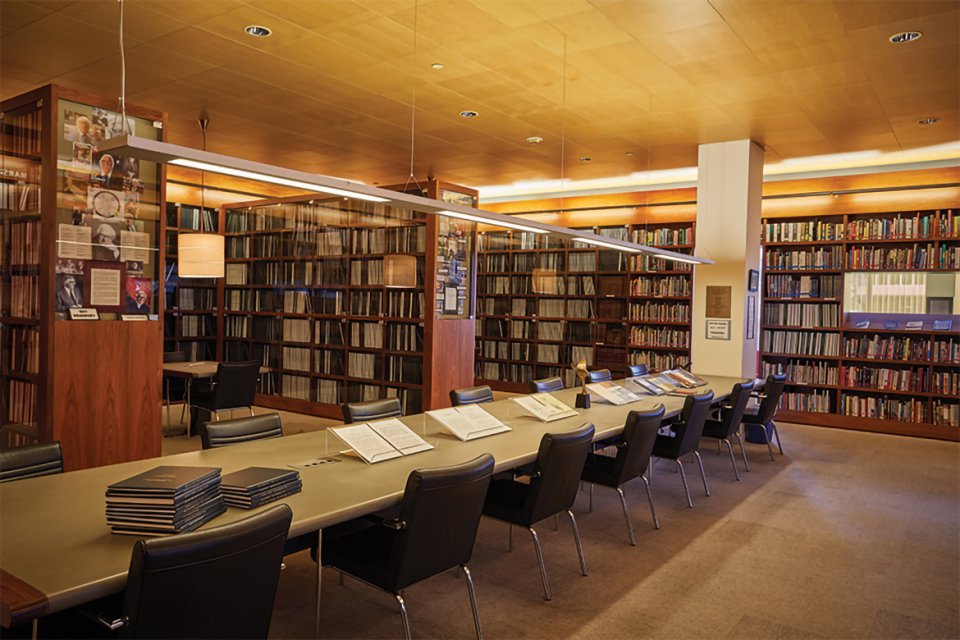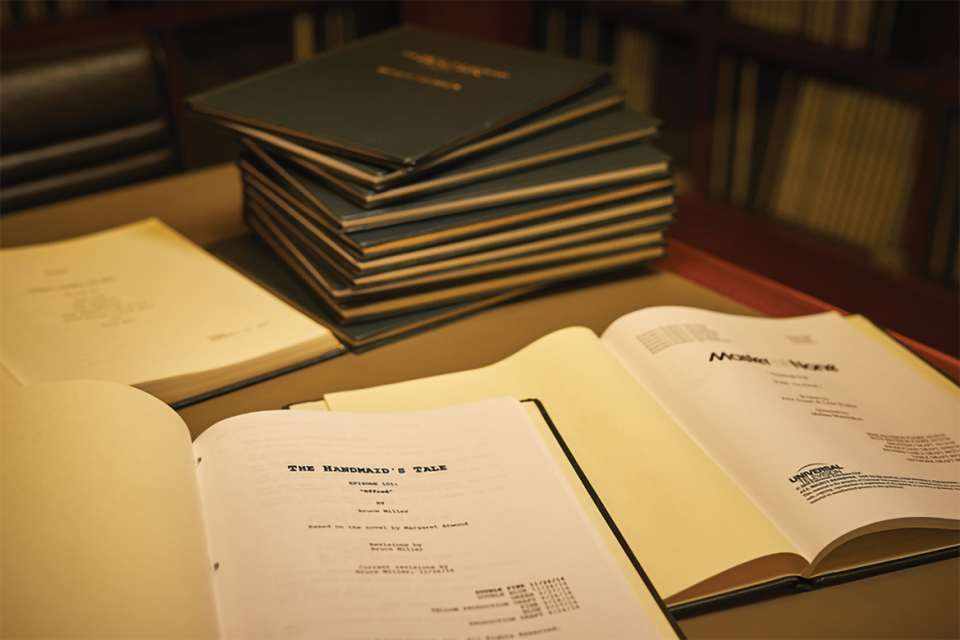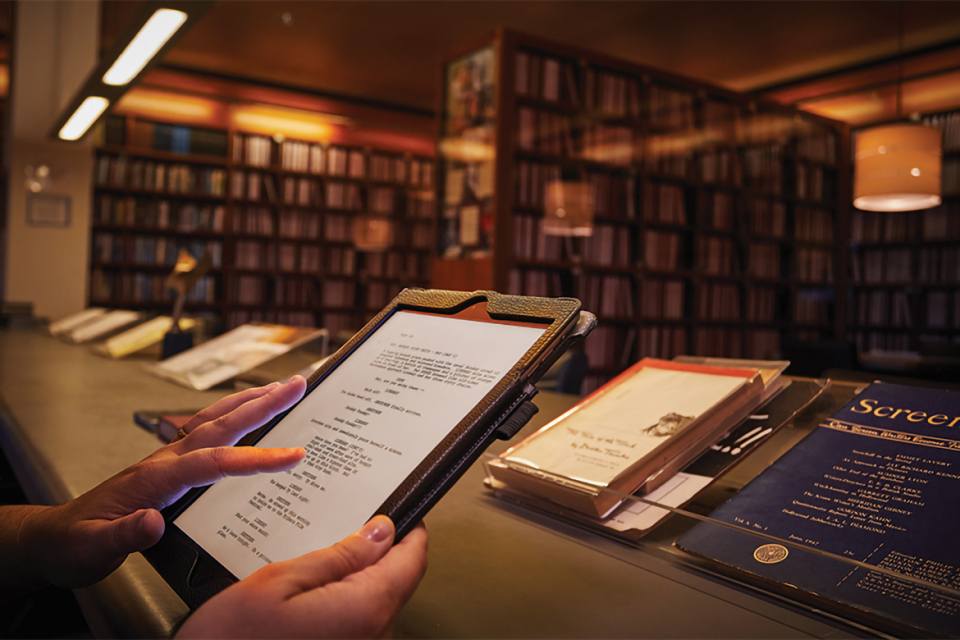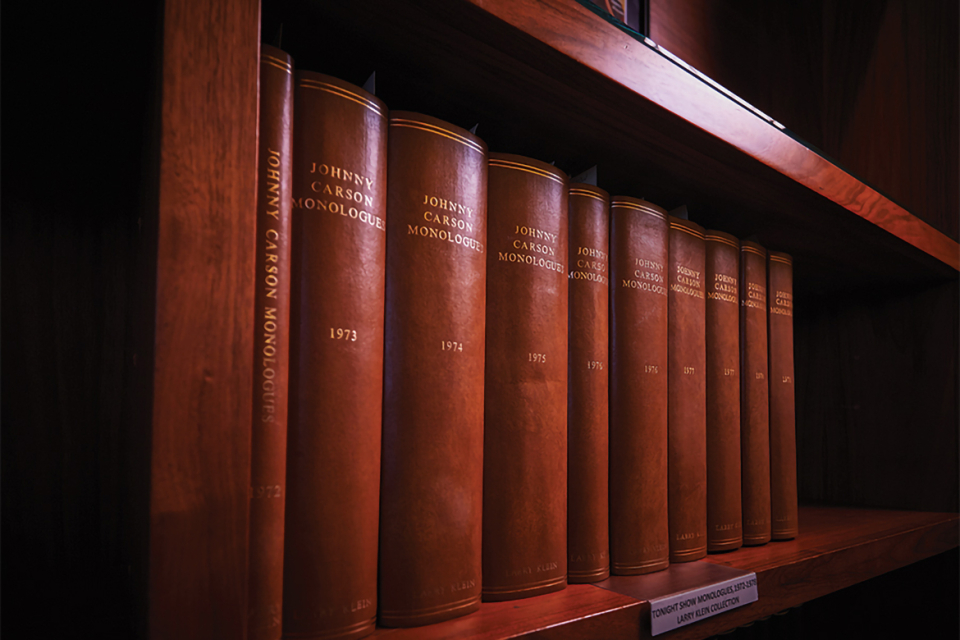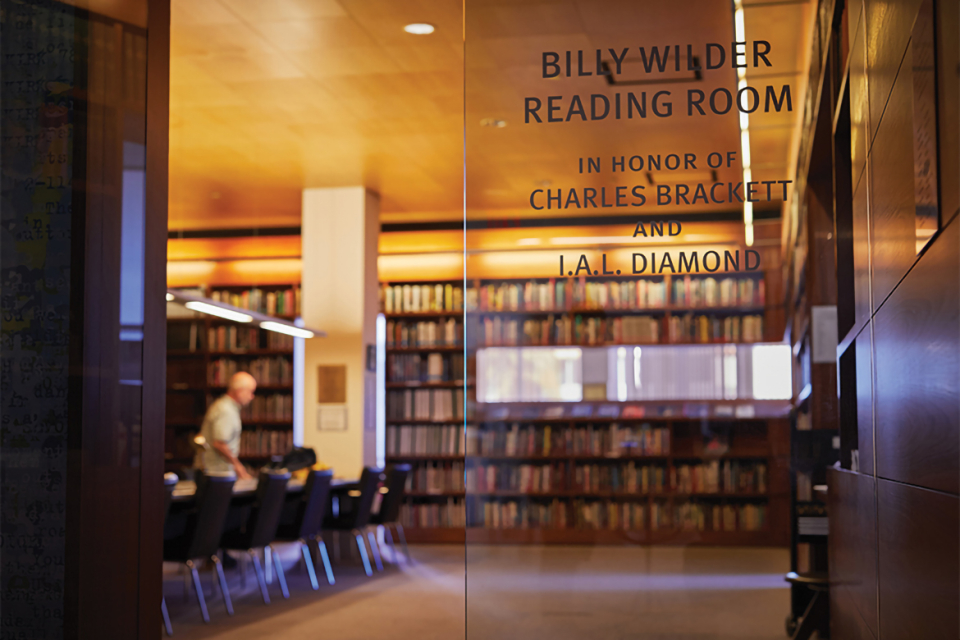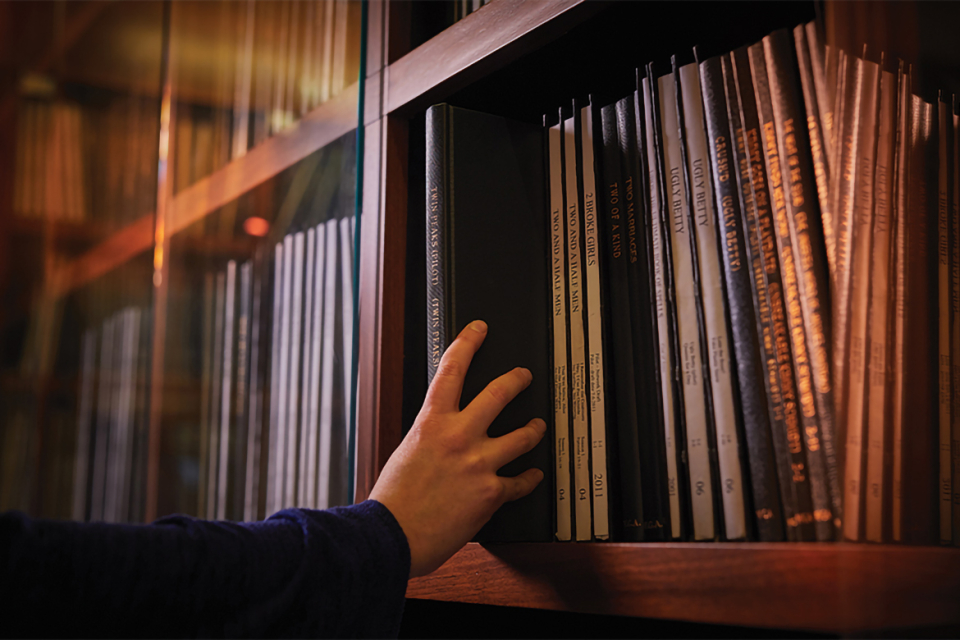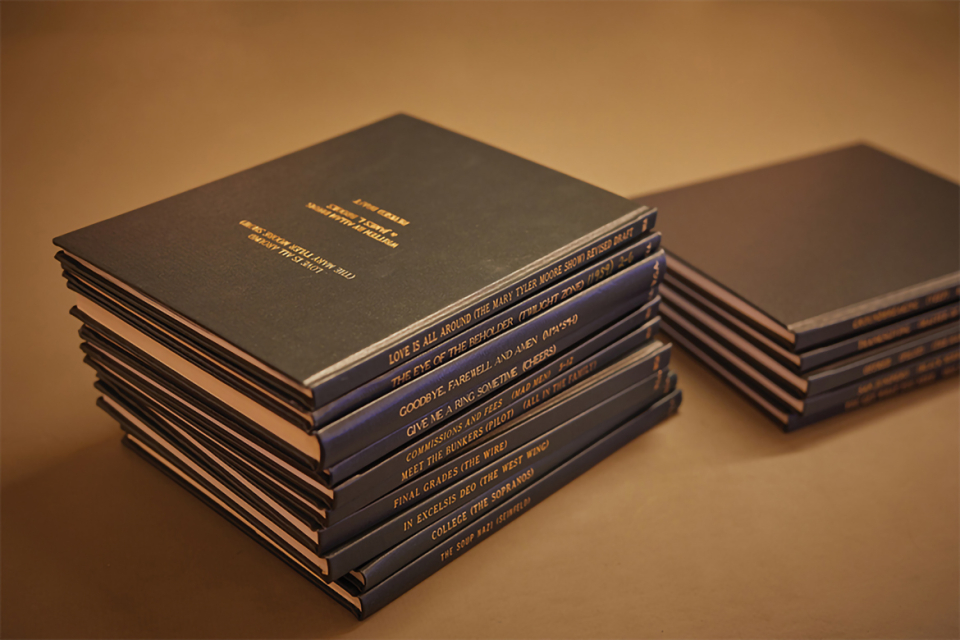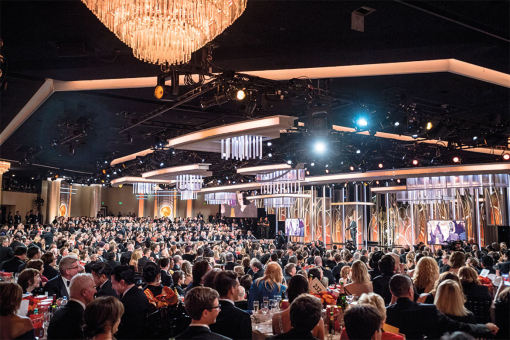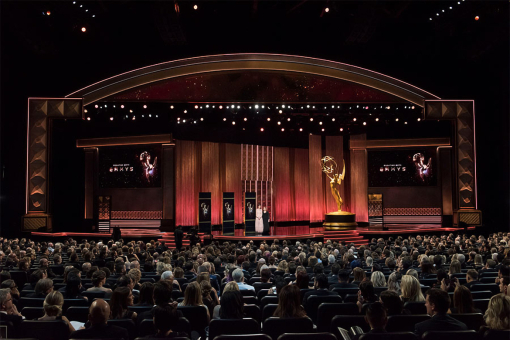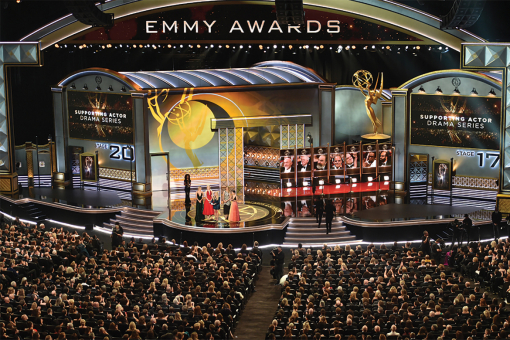While many writers claim to do their best work at Starbucks, L.A.–based scribes have a one-of-a-kind alternative: a library where they can find inspiration among the greatest television and film scripts of all time.
The Writers Guild Foundation Library and Archive — the only library in the world dedicated to writing — has more than 30,000 items in its collection, though none are available for checkout. "We're very similar to a public library, but different in that we're non-circulating," archivist Hilary Swett explains. "Everything has to be read on site."
While fledgling writers may grumble when told they can't take home the screenplay from Get Out (a recent acquisition) or scripts from shows like Grey's Anatomy, 30 Rock or even I Love Lucy, the reason for this is practical — and legal.
"A library has books, and those books have been published and purchased by the library. In our library, all of this is intellectual property owned by the studios and networks," says Swett, gesturing toward walls of neatly bound scripts locked behind glass cabinet doors. The doctrine of copyright law known as "fair use" allows the library to offer access to the scripts, she explains, "but not copying or distributing them. It's for research purposes only."
The studios and networks may own the rights to everything in the room — a cozy, first-floor space inside the Writers Guild Foundation on Third Street in Los Angeles — but the collection is decidedly home-grown. "Almost everything comes from personal donations from writers themselves," says Enid Portuguez, director of communications for the foundation.
Though the library reaches out to writers for some of the collection (Jordan Peele happily donated Get Out on request), in other cases scripts are saved from becoming dumpster fodder. "We acquire things from people cleaning out their garages," Swett says. "They'll have a bunch of television scripts from the '70s or '80s. It could be six drafts of an episode of Maude. It runs the gamut."
But change is on the horizon for the library, which was established in 1984.
"Our challenge now is to figure out what our library will be in the future," says Katie Buckland, executive director of the foundation. "People are used to accessing information at their fingertips, and when they can't figure something out, they look on their phone. We can't offer that, because we are not the owners of the scripts."
The solution lies in part in redefining the library itself, which Buckland says is becoming "a more abstract concept. It's not so much a physical place where people go — it's a collection of knowledge you can access from your couch. Eventually we'd like to move to a system like Kindle's — they can loan you a script or book for a couple of days. But we have to get the studios involved before we do that."
For now, the physical library remains important to scribes — especially beginners — who come for a quiet place to write and study the craft of screenwriting, surrounded by writing that made the cut.
The likes of Matt Weiner and Shonda Rhimes were regular visitors before they became working writers. "I walk in sometimes, see the crowded library and think, 'The next Shonda Rhimes is probably here,'" Buckland says. "It's very powerful."
The library is free to the public. It also hosts community outreach programming, inviting students from local elementary schools and staging late-night "write-a-thons" that coincide with industry contest deadlines.
"We stay open late on a Saturday night sometimes," Buckland explains. "Some people come in their pajamas and we serve pizza. [The writing is] something they could be doing at home, but it's just more fun and more focused to do it as part of a group."
But some old-fashioned library rules still apply, like Shhhh . The staff is willing to overlook conversations if no one is bothered. But Buckland says, laughing, "One of my favorite sayings — and I'd like to have it on a plaque here — is, 'Silence is golden and duct tape is silver.'"
This article originally appeared in emmy magazine, Issue No. 9, 2018

